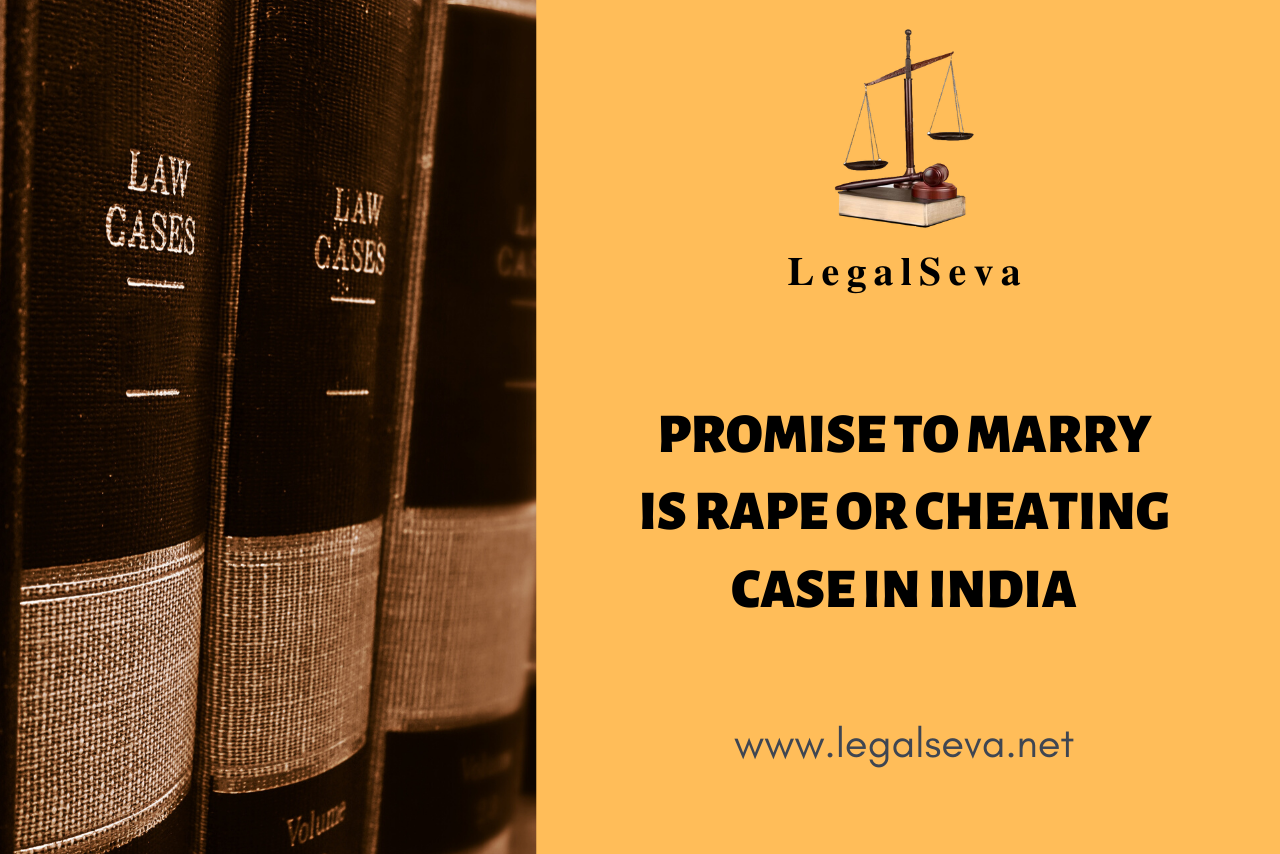Last Updated on April 5, 2020 by Legalseva.net
Whether a false promise to marry comes within the ambit of Section 375 of IPC?
The rape is an offence, the existence of which solely depends upon the consent of the victim. In light of consent, rape can be broadly classified into three categories. First category is where rape is done by force or where the consent of the victim was not free.Second category is where the victim is incapable of giving any consent and third category includes cases where the victim has been defrauded.The horizons of the third category encompass a rape where it’s done subsequently of a false promise to marry. This offence can be read into section 375 in conjunction with section 90 of the Indian Penal code that talk about rape and definition of consent respectively. Section 90 lays down that the consent to rape is vitiated if coupled with a misconception of fact.However, this reasoning is out and out flawed owing to four major reasons, which are enumerated hereinbelow.
Also Read- Consent in Promise to Marry Cases
I
Section 375 – An Unequivocal Provision
It mentions six descriptions which are distinct from one another. First two descriptions talk of a rape without any consent. Conversely, subsequent descriptions deal with the case where the consent of the victim was present but it is vitiated owing to the reasons mentioned in these sections. So, there is a clear distinction between these two groups of descriptions. The rape case of false promise to marry involves vitiated consent that apparently comes under the second group of description. However, legislature has tried to encompass it within the second description which is a clear violation of the very scheme of Section 375. This omission makes it amply clear that it is misplaced and cannot, at any cost, come under the first group of descriptions. Thus, not even section 90 read in conjunction with 375 can place the said act into the description of ‘secondly’ of section 375 of the Indian Penal Code.
Also Read- Acquittal in Abetment of Suicide Case Against Husband
II
Consent is already defined under Section 375.
Section 90, which defines the consent could apply to other sections of IPC including 87, 88 and 89, where the word has been only used without giving any specific definition. However, it cannot be used in the case of section 375, which clearly lays down what is the scope and nature of consent and under what circumstances it can be considered to be vitiated or annulled. Both the scenarios are significantly different and in second scenario it is impossible to include the definition enumerated in section 90 to read in conjunction with section 375. In addition to that, the descriptions starting from thirdly to sixthly don’t consider misconception of fact as being worthy enough to be included under its ambit.Also, the amendment to section 375 provides for the definition of the word “consent” which expels the need to broaden its horizons and consider what is laid out in section 90.
Also Read- File Divorce Online in India
III
Uday v. State of Karnataka
The Apex court in this case held that a false promise to marry does not come within the ambit of ‘misconception of fact’. It becomes pertinent to note what the exact words of the court were “Para. 26. In view of our findings aforesaid, we do not consider it necessary to consider the question as to whether in a case of rape the misconception of fact must be confined to the circumstances falling under Section 375 fourthly and fifthly, or whether consent given under a misconception of fact contemplated by Section 90 has a wider application so as to include circumstances not enumerated in Section 375 IPC.” However, the subsequent case of Dileep Singh v. State of Bihar held that a false promise to marry comes under the second description (without consent instead of vitiated consent) of Section 375. However, the question of law that had been open for interpretation in Uday v. State of Karnataka was not considered in this case.Without looking into that the court went on to hold that the false promise to marry that eventually led to rape will come under the ambit of section 375. From that day, the courts have went on to follow this judgement of Dileep Singh, the questions and controversial interpretation laid down in the Uday case has still not been answered and reasoned by any court of law yet. Thus, in light of this, the judgement is itself per incuriam. The time and the jurisprudence awaits the rectification of this error.
Also Read- Application for Speedy Trial from High Court Chandigarh
For case specific advice, one may contact top best expert criminal lawyer of Chandigarh Panchkula Mohali District Court and Punjab Haryana High Court Chandigarh.
This post is written by Aniket Panchal.
More on 99888-17966.

